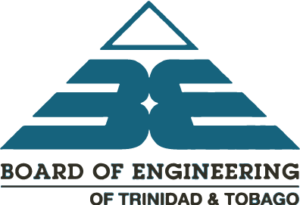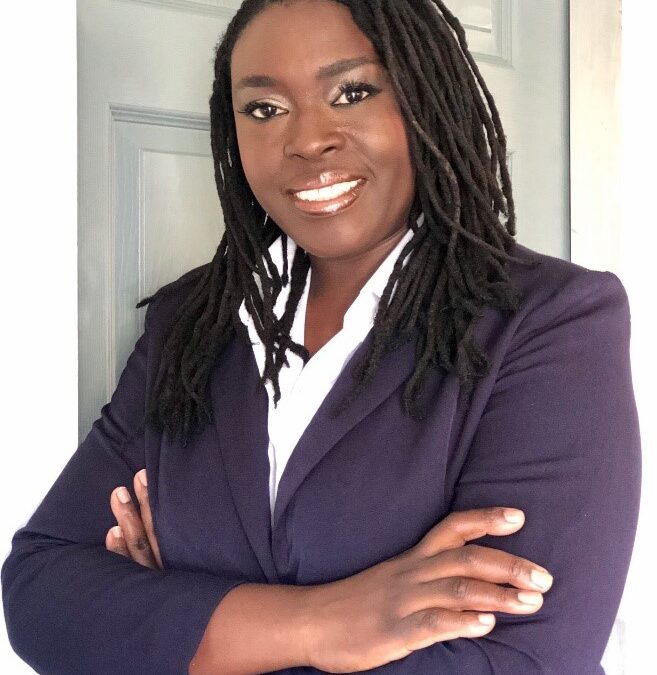Katherine Agong, BSc, MSc, CTTP, IEng, FCIHT, R.Eng.
A Chat with Transportation Engineer Katherine Agong
Engineer Katherine Agong is a Transportation Planner and Transportation Engineer who applies innovative techniques for analysing and resolving traffic and transport problems. She holds a Master’s degree in Transport Planning and Engineering, and is a Chartered Transportation Planning Professional (UK), a Fellow of the Chartered Institution of Highway and Transportation Engineers (UK), and an Incorporated Engineer with the Engineering Council (UK). She is also a Registered Engineer with the Board of Engineering of Trinidad and Tobago (BOETT) in the specialist category of Transportation Engineer in which she is the first and only female Registrant. Engineer Agong is a PhD researcher in the fields of Transport Planning and Transport Engineering and serves on the Board of Directors of the National Planning Authority of Trinidad and Tobago
As part of the celebration of International Women in Engineering Day on June 23, the BOETT had a Chat with Engineer Agong to explore her experiences, insights, and contributions to the field of Transportation Engineering and to understand her professional journey and expertise as the only female Registered Engineer with the Board of Engineering of Trinidad and Tobago in the specialist category of Transportation Engineering.
Q1. What inspired you to pursue a career in transportation engineering?
As a child, I wished that there was someone to solve traffic and transport problems because I disliked the consequences of being late for school because of traffic congestion. Then many years later during my undergraduate studies I had lectures on the relationship between landuse and transport. After I graduated, I realized that this was actually a career, so I sought out opportunities to work in the field and eventually did a master’s degree in Transport Planning and Engineering at Edinburgh Napier University in Scotland.
Q2. Can you tell us about your educational background and how it prepared you for this field?
Being educated at the MSc level prepared me tremendously for my work as a Transportation Engineer. I received an MSc at one of the best universities for Transportation Planning and Transportation Engineering in the UK. With that underpinning knowledge I am able to understand transportation engineering requirements of projects, develop designs and implement fit-for-purpose solutions in a very detailed and efficient way. I am also very quickly able to see and assess problems with transportation engineering infrastructure that engineers in other specializations can’t. My educational background also made it possible for me to be registered as an Incorporated Engineer in the UK.
Q3. Could you share a significant project you’ve worked on and your role in it?
I have done transportation engineering projects for more than 22 years all over the world. Wales, England, Malaysia, Singapore, Australia etc. but the one that is most meaningful to me would surprise a lot of people! In 2018, whilst employed at the Ministry of Works and Transport in Trinidad one of my first projects was to redo and update the timings of the traffic lights at intersections along Wrightson Road in Port of Spain. I was really proud that the journey time along Wrightson Road during the morning and afternoon rush hours was cut by 50% due to new timings. Plus, the length of the peak traffic periods was reduced as well. I also solved the problem of lack of coordination between the traffic lights so most motorists would now get a green light at each intersection rather than get the red several times along Wrightson Road. I solved a problem that persisted for many many years, and although it was not the most complex work I’ve done, it was my first major project in Trinidad using knowledge and expertise that I gained in the UK, Additionally, Trinidad is where the seed of my career in transportation engineering was first planted as a child. Hence this project is significant to me and gives me extreme pride!
Q4. What advancements in transportation engineering are you most excited about?
I’m most excited about the new ways of collecting and analysing transportation data. Working with a lot of data and making data-driven decisions is a big part of what a Transportation Engineer does. So, anything that makes the task more transparent, easier and reduces the chances of error excites me.
Q5. What do you see as the biggest challenges and opportunities in transportation engineering in Trinidad and Tobago over the next decade?
The biggest challenges and biggest opportunities are related to technical capability and capacity. There are not many people who are qualified to do transportation engineering. There is a great need for our input to the built environment in Trinidad and Tobago to make our roads, pavements, other transport solutions and facilities safer and better. So, it is vital that plans are made at the University, Central Government and Local Government levels for investment in training in Transportation Engineering.
Q6. Are there any particular goals or projects you are currently focused on or excited about for the future?
I am currently focused on completing a PhD. This has been an interesting and insightful, enjoyable and tough journey. The new knowledge that I have developed as a PhD candidate will most definitely have a profoundly positive impact on the World. I am also preparing to present my work at an international conference. I am so excited about that because over 3400 abstracts were submitted for this conference and mine was one of those chosen. So, there is interest in my research globally.
Q7. How do you stay updated with the latest trends and technologies in transportation engineering?
I read a lot of material on transportation engineering. I am a Fellow of the Institution of Highways and Transportation in UK and so I attend their webinars and read their research publications, policy documents and newsletters. I have a large network of transportation engineering professionals around the world via LinkedIn, so I look forward to their posts about their work in other countries. I am also a member of an international network of people doing research in transport in low income countries so we share a lot of information. I have just discovered quite a few good Youtubers who produce content about Transport, so I look forward to their updates too.
Q8. What innovative technologies or practices do you believe will shape the future of transportation?
The future of transportation will be shaped by agenda related to climate change, the rising awareness about the relationship between transport and health and well-being of citizens as well as the need for equity and inclusion.
Q9. Can you discuss a transportation project that you believe has made an impact on public safety or efficiency?
The pedestrian crossings in downtown Port of Spain near to City Gate were recently modified to allow for diagonal crossing. Whilst I was not involved in that project I was asked to give an informal assessment of the project. So, I looked and took photos and did a site visit. It definitely improves the safety for pedestrians at that junction. There were a couple suggestions I gave for improvement to make the solution a bit more inclusive, but this will involve the use of special equipment and the procurement of contractors for small infrastructure works, so my suggestions have not yet been implemented, which is understandable.
Q10. Finally, how do you measure the success of a transportation project?
Success is measured by the final cost of the project, if it came in on budget or not, and if it has had a positive impact on members of the public and the society at large is delighted by it. A project is also successful if the sustainability objectives have been met. Also, positive feedback always makes me feel happy.


